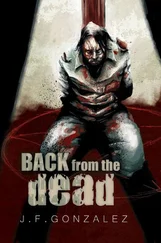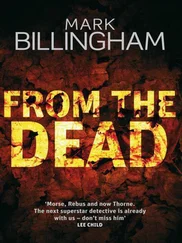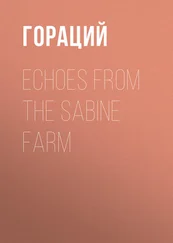Johan Theorin
Echoes From the Dead
To the Gerlofsson family, Öland
The wall was built of big, rounded stones covered in grayish white lichen, and it was the same height as the boy. He could only see over it if he stood on tiptoe in his sandals. Everything was gray and misty on the other side. The boy could have been standing at the end of the world, but he knew it was just the opposite — the world began on the other side of the wall. The big wide world, the world outside his grandparents’ garden. The thought of exploring the world on the other side of the wall had tempted the boy all summer long.
Twice he tried to climb over the wall. Both times he lost his grip on the rough stones and fell backwards, into the damp grass.
The boy didn’t give up, and the third time he succeeded.
He took a deep breath and heaved himself up, held on tight to the cold stones, and managed to get on top of the wall.
It was a victory for him — he was almost six years old, and for the first time in his life he was on his way over a wall. He sat there on the top for a little while, like a king on his throne.
The world on the other side of the wall was huge, with no boundaries, but it was also gray and blurred. The fog that had drifted in over the island this afternoon prevented the boy from seeing much of what lay outside the garden, but at the bottom of the wall he could see the yellow-brown grass of a small meadow. Further away he could just make out low, gnarled juniper bushes and moss-covered stones, sticking up out of the earth. The ground was just as flat as in the garden behind him, but everything looked much wilder on the other side; strange, enticing.
The boy put his right foot on a big stone that was half buried in the ground, and climbed down into the meadow on the other side of the wall. He was outside the garden all on his own for the first time ever, and nobody knew where he was. His mother had gone off somewhere today, left the island. His grandfather had gone down to the shore a little while ago, and when the boy put on his sandals and crept out of the house, his grandmother had been fast asleep.
He could do whatever he wanted. He was having an adventure.
He let go of the stones in the wall and took a step out into the wild grass. It was sparse, easy to get through. He took a few more steps, and the world in front of him slowly became a little clearer. He could see the juniper bushes taking shape beyond the grass, and walked toward them.
The ground was soft and any sound was muted; his footsteps were nothing more than a faint rustling in the grass. Even when he tried jumping with both feet together, or stamping his feet really hard, all that could be heard was a slight thud, and when he lifted his feet the grass sprang up and all trace of his footsteps quickly disappeared.
He covered several yards like this: Hop, thud. Hop, thud.
When the boy left the meadow and reached the tall juniper bushes, he stopped jumping with both feet together. He breathed out, inhaled the cool air, and looked around.
While he had been hopping across the grass, the fog that had been drifting ahead of him had crept silently around, and was now behind him. The stone wall on the other side of the meadow had become indistinct, and the dark brown cottage had completely disappeared.
For a moment the boy considered turning around, walking back across the meadow, and climbing over the wall again. He had no watch and precise times meant nothing to him, but the sky above his head was dark gray now, and the air around him had grown much colder. He knew the day was drawing to a close, and the night would soon come.
He’d just go a little bit further over the soft ground. After all, he knew where he was; the cottage where his grandmother lay sleeping was behind him, even if he couldn’t see it anymore. He kept walking toward the hazy wall of fog which could be seen but not touched, and which slid just a little bit further away from him all the time, in a magical way, as if it were playing with him.
The boy stopped. He was holding his breath.
Everything was silent and nothing was moving, but suddenly the boy had the feeling that he wasn’t alone.
Had he heard a noise in the fog?
He turned around. Now he could no longer see the wall or the meadow; he could see only grass and juniper bushes behind him. The bushes were all around him, motionless, and he knew they weren’t alive — not alive in the way that he was — but he still couldn’t help thinking about how big they were. They were black, silent figures surrounding him, perhaps moving closer to him when he wasn’t looking.
He turned again, and saw more juniper bushes. Juniper bushes and fog.
He no longer knew in which direction the cottage lay, but fear and loneliness made him keep moving forward. He clenched his fists and ran across the grass; he wanted to find the stone wall and the garden behind it, but all he could see was grass and bushes. In the end he couldn’t even see that much; the world was blurred by his tears.
The boy stopped, took a deep breath, and the tears stopped flowing. He could see more juniper bushes in the fog, but one of them had two thick trunks — and suddenly the boy realized it was moving.
It was a person.
A man.
The man came forward out of the gray fog and stopped just a few short steps away. He was tall and broad-shouldered; he was dressed in dark clothes, and he had seen the boy. He stood there in the grass, heavy boots on his feet, looking down at the boy. His black cap was pulled down over his forehead and he looked old, but not as old as the boy’s grandfather.
The boy stood still. He didn’t know the man, and you had to be careful of strangers, his mummy had said. But at least he wasn’t alone in the fog with the juniper bushes anymore. He could always turn around and run if the man wasn’t nice.
“Hello there,” said the man in a deep voice. He was breathing heavily, as if he’d just walked a long way in the fog, or as if he’d been running fast.
The boy didn’t reply.
The man turned his head quickly and looked around. Then he looked at the boy again, without smiling, and asked quietly:
“Are you on your own?”
The boy nodded silently.
“Are you lost?”
“I think so,” said the boy.
“It’s all right... I can find my way anywhere out here on the alvar.” The man took a step closer. “What’s your name?”
“Jens,” said the boy.
“Jens what?”
“Jens Davidsson.”
“Good,” said the man. He hesitated, then added, “My name’s Nils.”
“Nils what?” asked Jens.
It was a bit like a game. The man gave a short laugh.
“My name is Nils Kant,” he said, taking another step forward.
Jens stood still, but he’d stopped looking around. There was nothing but grass and stones and bushes in the fog. And this strange man, Nils Kant, who had begun to smile at him as if they were already friends.
The fog closed in around them, not a sound was to be heard. Not even birdsong.
“It’s all right,” said Nils Kant, stretching out his hand.
They were standing quite close to each other by now.
Jens thought that Nils Kant had the biggest hands he’d ever seen, and he realized it was too late to run away.
When her father, Gerlof, rang one Monday evening in October, for the first time in almost a year, he made Julia think of bones, washed up onto a stony shore.
Bones, white as mother-of-pearl, polished by the waves, almost luminous among the gray pebbles at the water’s edge.
Fragments of bone.
Julia didn’t know if they were actually there on the shore, but she had waited to see them for over twenty years.
Читать дальше












